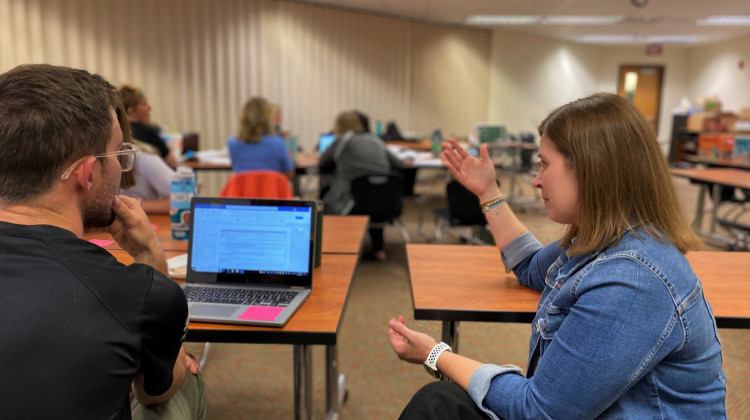
When students receive mental health support at school, educators get permission from parents, said Krista Fay with Avon Community Schools. Staff meet on Tuesday, May 30, 2023 at Cedar Elementary School to prepare for the next school year.
Dylan Peers McCoy/WFYIIf you or someone you know is in crisis, please call, text or chat with the Suicide and Crisis Lifeline at 988, or contact the Crisis Text Line by texting TALK to 741741.
Wendy Dodds is pretty sure she was anxious in eighth grade. But the pandemic made her anxiety and depression a lot worse.
Suddenly, she had to join dance classes and 4-H camp by video from her bedroom. She started high school in Indianapolis remotely.
“I tried to, like, convince myself that these feelings are normal and everybody is, like, feeling these feelings right now,” Dodds said. “It’s fine. It’ll subside at some point.”
But her feelings didn’t subside. That winter, Dodds told her parents she couldn’t take it anymore. She felt suicidal.
Mental health needs are at a peak among U.S. children and teens. A 2021 national survey found that nearly half of Indiana high schoolers felt persistently sad or hopeless — the highest rate in two decades of surveys. The same survey found that three out of every 10 Indiana students said they had considered suicide.
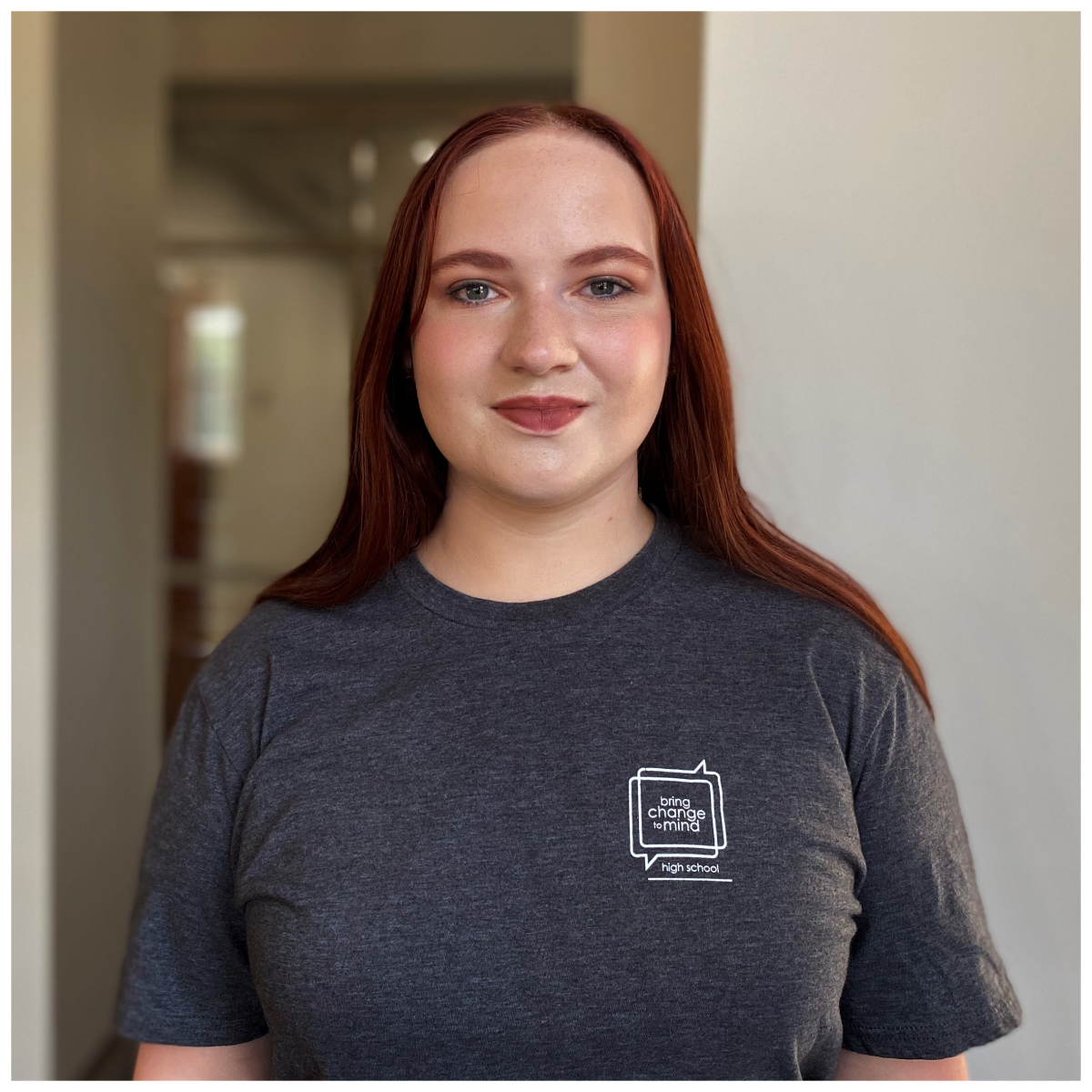
Dodds found help at her high school, where she started to meet with a counselor to talk about her anxiety.
“It brought me back into reality, basically, instead of keeping me locked into my own mind,” said Dodds, who graduated high school this year.
Yet despite the growing need, the kind of mental health support Dodds found at school is facing an onslaught of criticism from conservative parent activists. They say schools should focus on academic instruction. And they caution that mental health care and social and emotional learning may promote ideas that conflict with parents’ values.
“A small but loud and politically savvy group of — and it's not just of parents, it's really of political activists — are hijacking and spreading a lot of misinformation about mental health and social emotional learning in schools and really leveraging people’s fear,” said Sharon Hoover, co-director of the National Center for School Mental Health.
Hoover said district and state education officials are under attack. She worries outside pressure is pushing them to make decisions that will set back student mental health support “at a time where we know that young people are suffering more than ever.”
National and state tensions
President Joe Biden has called for more mental health support in schools. National legislation aimed at preventing gun violence included $1 billion in funding over five years for schools to support student mental health.
By contrast, the controversial Florida-based group Moms for Liberty recently proclaimed mental health support has no place in public schools. The group is influential, with chapters in Indiana and most states. Five candidates running for the GOP presidential nomination, including former President Donald Trump, spoke at the national meeting.
Mental health support often goes hand-in-hand with social and emotional learning, an approach that aims to help students with skills such as managing their emotions and feeling empathy for others. SEL is a target of right-wing politicians across the country.
In Indiana, Republican legislators passed a law this year that restricts districts' ability to survey students about their mental and emotional wellbeing. And Indiana’s Attorney General Todd Rokita criticized social and emotional learning in the latest version of a document he calls the “Parents’ Bill of Rights.”
Rokita argued those programs “represent a fundamental shift in the role of teachers from educators to therapists and expand the reach of government into domains of the family.”
The Indiana Department of Education, meanwhile, quietly moved resources from a page about social, emotional and behavioral wellness off its public website — including the state’s Social Emotional Learning Toolkit. The toolkit and other materials are now posted on a portal for educators that requires users to login and enter an enrollment key.
Spokeswoman Christina Molinari said the education department overhauled the website and moved it to the state’s web host when Secretary Katie Jenner took office in 2021. Molinari said the department uses other tools, such as the portal for educators, to provide resources.
“We had received feedback that finding information on the website could be challenging,” said Molinari, who added that the old website contained thousands of web pages, documents, and links.
“We sought to build a more user-friendly website while also aligning the site’s format to that of our executive branch partners’ websites and focusing on the department’s strategic priorities,” she added.
Education topics that are less polarized, such as literacy, have robust, publicly accessible pages on the current site.
Some advocates say the removal of social and emotional learning is a response to right wing attacks.
"The DOE website was full of these resources and lots of people had access to them,” said Sandy Washburn, a research scholar at Indiana University. “When the politicization of these issues started coming up, the department removed everything.”
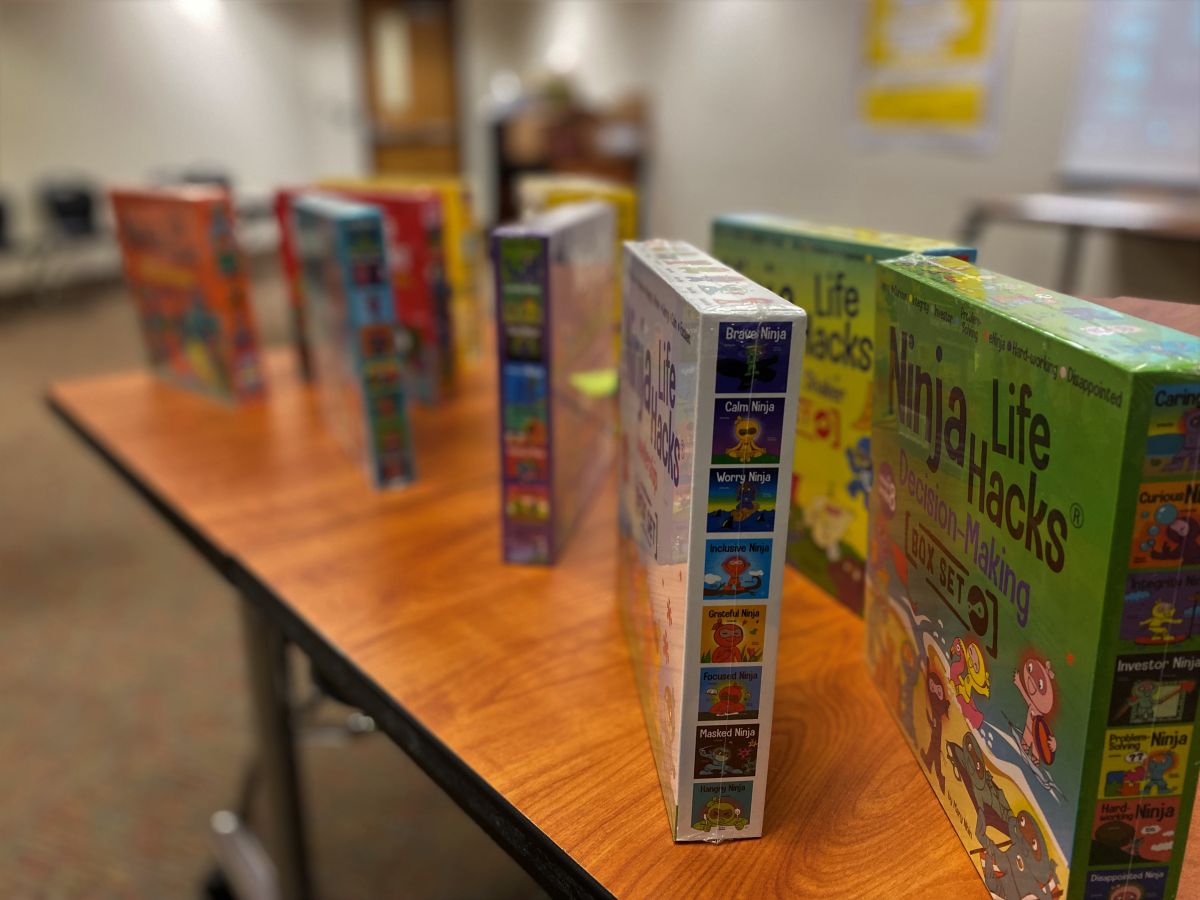
A fight in the Indianapolis suburbs
The kind of mental health support Indiana schools offer is primarily up to local districts, where it has faced some scrutiny.
In suburban Indianapolis, the political controversy came to a head last winter after conservative candidates took control of the Hamilton Southeastern School Board.
The district won a $5.8 million federal grant to pay for counselors, social workers and psychologists. But some residents and conservative board members weren’t sure the schools should take the money.
At a February meeting, speaker Shannon Fields told the board she supports counseling and mental health care in schools. But, she said, it should not be embedded in classrooms.
“I urge the board to resist mission creep expanding the schools into areas beyond the core focus on education,” Fields said.
Conservative board members picked apart the grant application.
“I think a lot of people have reservations with what they’ve seen in the past as far as a school overstepping its boundaries,” said Ben Orr, who won a seat last year after campaigning on parental involvement and academic excellence.
“What kind of guardrails do we have where this thing keeps it close to counseling, therapy, mental health screenings for an academic standpoint as it relates directly to school?” Orr asked.
Most of the speakers who filled the room, however, supported mental health care. Lyndee Kennett, and others, were there to tell the board about why students need help.
Kennett’s daughter is a student in Hamilton Southeastern with anxiety. Last school year, Kennett asked the school for help, she told WFYI, and her daughter started meeting with a social worker.
“I think the school and parents are kind of in it together, because that's where our children are most days,” said Kennett, who was surprised at the fight over the federal grant money.
“When I was told about what was happening — that the school board was thinking about turning down the money — that just broke my heart,” she said.
Hamilton Southeastern took the federal aid. The board put out a statement in “strong support” of the grant, and Orr posted a Facebook note about his support.
A month later, however, the Hamilton Southeastern board abruptly ended its contract for a student survey the district used to assess wellness. Board members had pressed the administration about who had access to survey responses from individual students. The same company — Panorama Education — was also mentioned when legislators passed a law to curtail student surveys this year.
What student wellness looks like
Many Indiana school systems have invested in mental health support in recent years, hiring more counselors and social workers as well as developing districtwide plans for social and emotional learning. Between 2017 and 2021, the number of school social workers in Indiana rose by over 20 percent, according to data from the Indiana Department of Education.
In part, those investments were driven by federal grants, such as the Project AWARE mental health initiative, and local philanthropic funding for counseling from the Lilly Endowment.
Avon Community Schools, another suburban Indianapolis district, got funding from both those sources. Avon students can get therapy at school through Cummins Behavioral Health Systems. And the district has social workers on staff who lead small groups and meet with children one-on-one.
Before students get those services, though, a parent or guardian needs to give consent, said Krista Fay, the district’s School Counseling and Mental Wellness Coordinator.
Staff talk to parents about what is going on with their children and the services the school offers. “Families and kids are always in the driver's seat,” Fay said.
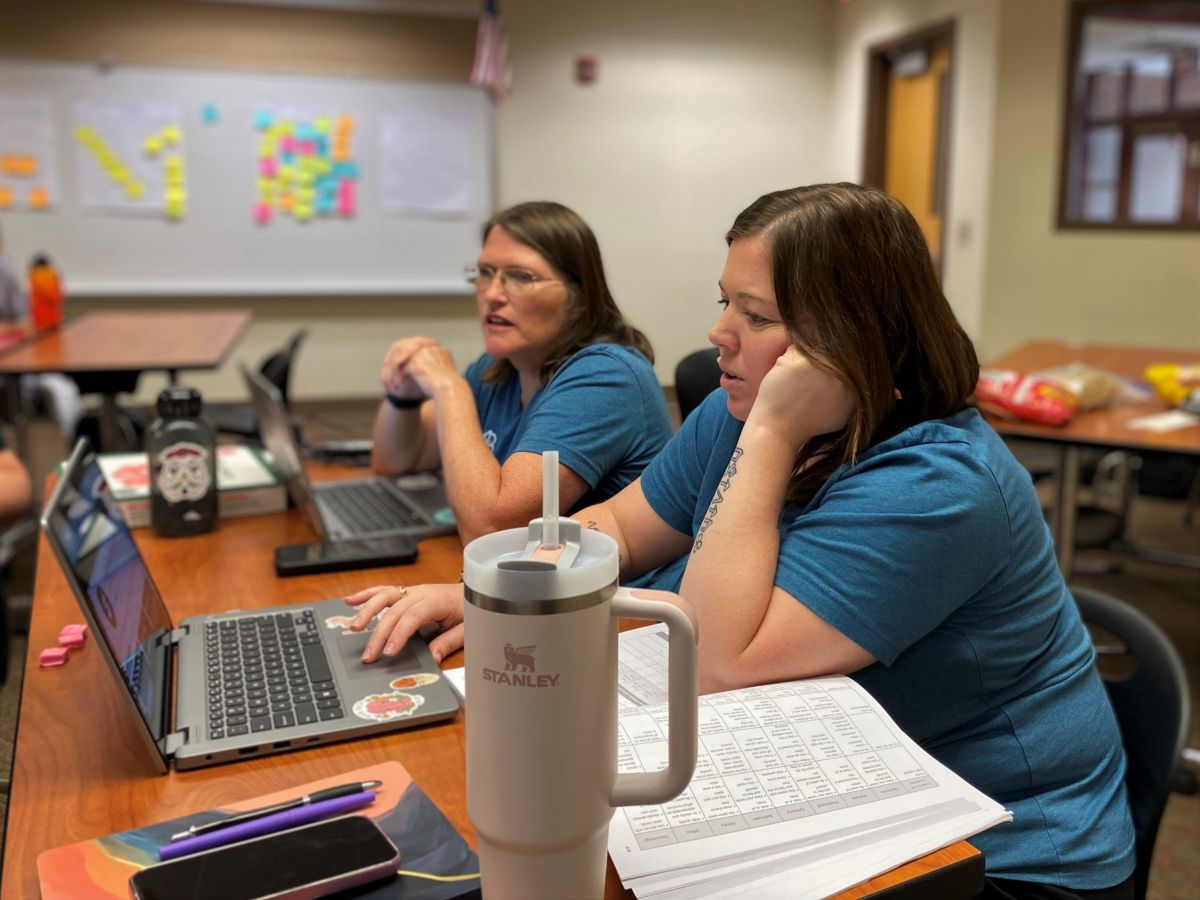
In practice, a lot of social emotional learning is uncontroversial. Like the calming technique “star breathing.” It has a simple rhythm. Students breath in and out slowly as they trace the shape of a star.
“The power is in the outbreath,” Fay said. “That's where that change in your heart rate and your blood pressure comes, is in that out breath.”
Fay’s heard from parents who are upset about the school’s wellness and mental support. She knows some of what they do is at the center of political attacks. But she thinks it’s essential for students to thrive.
“If you're coming in and your anxiety is overwhelming you, if your chest is so tight that you can't breathe, if your thoughts are racing, how are you going to be available to hear that instruction?” Fay asked. "If you are not regulated, how are you going to learn?"
Contact WFYI education reporter Dylan Peers McCoy at dmccoy@wfyi.org.
 DONATE
DONATE




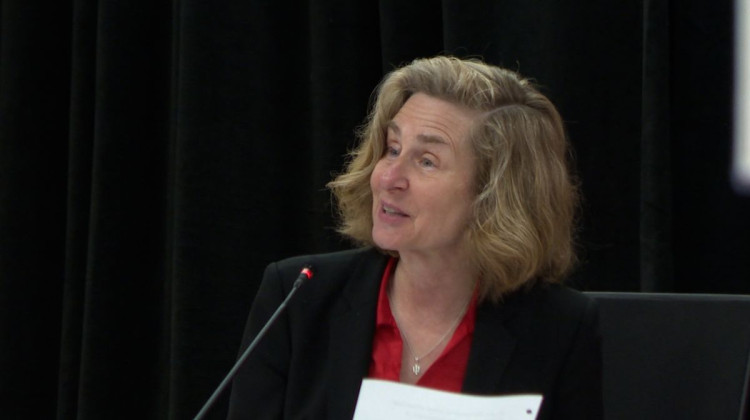

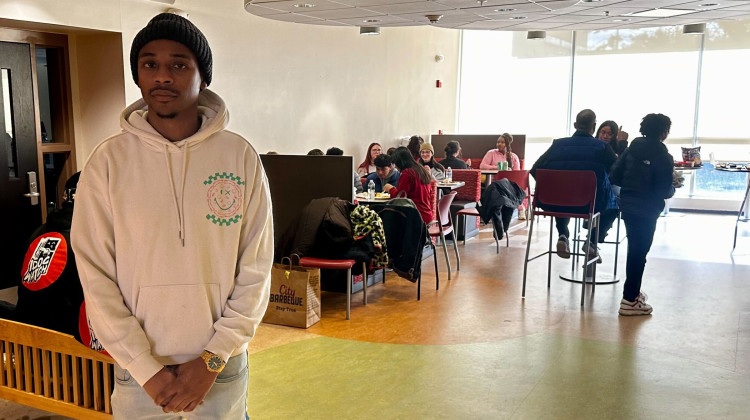

 Support WFYI. We can't do it without you.
Support WFYI. We can't do it without you.